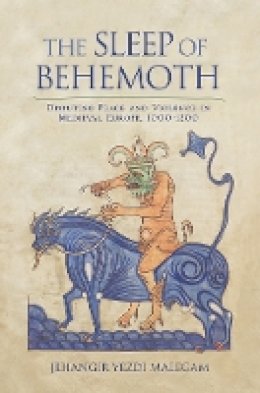
The Sleep of Behemoth: Disputing Peace and Violence in Medieval Europe, 1000–1200
Jehangir Malegam
In The Sleep of Behemoth, Jehangir Yezdi Malegam explores the emergence of conflicting concepts of peace in western Europe during the High Middle Ages. Ever since the early Church, Christian thinkers had conceived of their peace separate from the peace of the world, guarded by the sacraments and shared only grudgingly with powers and principalities. To kingdoms and communities they had allowed attenuated versions of this peace, modes of accommodation and domination that had tranquility as the goal. After 1000, reformers in the papal curia and monks and canons in the intellectual circles of northern France began to reimagine the ... Read more
As Malegam shows, within western Christendom's major centers of intellectual activity and political thought, the clergy competed over the meaning and monopolization of the term "peace," contrasting it with what one canon lawyer called the "sleep of Behemoth," a diabolical "false" peace of lassitude and complacency, one that produced unsuitable forms of community and friendship that must be overturned at all costs. Out of this contest over the meaning and ownership of true peace, Malegam concludes, medieval thinkers developed theologies that shaped secular political theory in the later Middle Ages. The Sleep of Behemoth traces this radical experiment in redefining the meaning of peace from the papal courts of Rome and the schools of Laon, Liege, and Paris to its gradual spread across the continent and its impact on such developments as the rise of papal monarchism; the growth of urban, communal self-government; and the emergence of secular and mystical scholasticism.
Show LessProduct Details
About Jehangir Malegam
Reviews for The Sleep of Behemoth: Disputing Peace and Violence in Medieval Europe, 1000–1200
